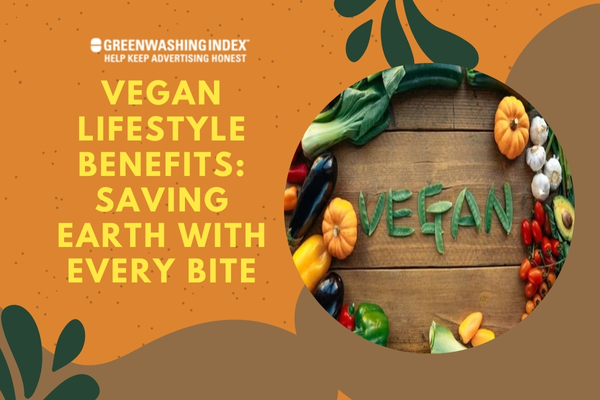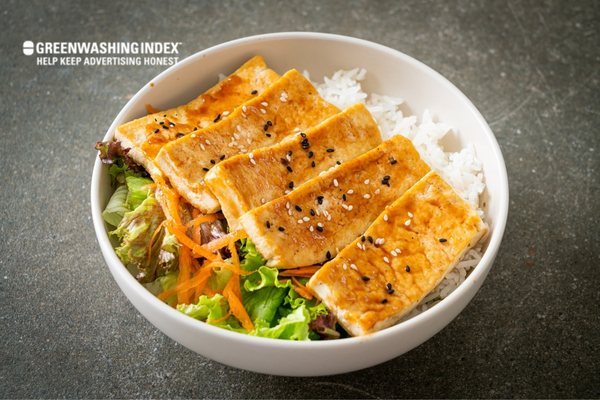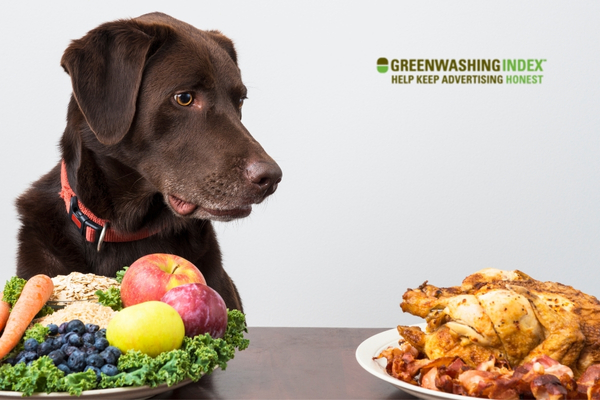

Have you ever thought about how your food choices impact the world around you? I’m here to explore the vegan lifestyle and its amazing power to heal our planet. Imagine a world where clear skies, lush forests, and vibrant wildlife are the norm. That’s what going vegan can help achieve.
By choosing a plant-based diet, you’re not just taking care of your health; you’re also doing a huge favor to Mother Earth. Being vegan means less land used for farming animals, fewer greenhouse gases, and conserved water resources. It’s like giving nature a big helping hand!
What You Glean from This Article:
Going vegan is not just about the food on my plate. It’s much bigger than that. When I chose to live a vegan lifestyle, it meant I was making eco-conscious choices every day that significantly helped our planet.

Living vegan has more than one way to help our home, Earth. First off, when I follow a plant-based diet, less land is needed to grow my food compared to raising animals for meat.
Growing plants takes up much less space and often requires less water and resources. What does this mean? It means there is more land left for nature – for forests, for wild animals, and plants that are vital for the Earth’s health.
Secondly, animals like cows and sheep produce a lot of gas – methane – which warms up our planet. When fewer animals are raised because there’s lower demand from people like me choosing tofu over steak, then there’s less methane entering the air.
Another point is about waste. Farming animals make lots of waste that pollutes rivers and soils. By eating plants directly, I am part of cutting down this pollution, too.
The good things about being vegan are not just ideas; they have real numbers behind them:
These aren’t small numbers; they’re huge! A single person changing what they eat might seem small but think if many people made eco-conscious choices just like me.
Every meal matters because each time I pick veggies over veal or lentils over lamb chops – I am actually fighting against climate change with my fork! Pretty amazing thing when you think about it like that, right?
Also Read: Composting Bread: Unveiling the Truth About Bread Waste
When I talk about the ways a vegan lifestyle can help the environment, one major point that stands out is how animal agriculture adds to environmental harm. Here’s why this is important: raising animals for food isn’t just about the land they live on; it affects our whole planet in ways that many of us may not even realize.
Livestock—like cows, pigs, and chickens—are a big source of greenhouse gases. These gases trap heat in the atmosphere and make our planet warmer. Warmer temperatures can lead to all sorts of problems, from stronger storms to longer droughts.
So you see, raising animals for food contributes quite a bit to these gases that heat up our planet. But by choosing a vegan lifestyle and eating plant-based foods instead, I’m helping reduce these harmful emissions. It’s one way my choices can lead to cleaner air and a cooler planet.
Now let’s talk about land use and deforestation:
Raising animals needs lots of land—not just where the animals live but also big areas to grow their food, like corn and soybeans. To get this space, people often cut down forests, which leads to fewer trees around.
Trees are really important because:
But when we switch over to eating plant-based foods:
When I choose to follow a vegan lifestyle, I think a lot about water. You might wonder what water has to do with being vegan. Well, the truth is that picking plants over animals can save a whole lot of water. Here’s why:
Here’s the thing: choosing veggies over meat doesn’t just help my body; it helps our rivers and lakes, too. Crops such as lentils and beans are amazing because they don’t ask for much water yet give back so many nutrients.
Ever think about how much energy goes into your dinner before it reaches your plate? Being eco-conscious means looking at everything – how food is grown or raised, how far it travels, and even how much waste it creates. So, let’s talk about energy in meat production versus plants:
In short, When I live by my vegan lifestyle credo and munch on plant-based meals instead of chowing down on meats or dairy products at mealtimes—like sandwiches filled with fresh veggies instead of slices packed with ham—I’m really doing Earth a favor. It saves power big time!
Also Read: Ink Cartridge Recycling: Your Ultimate Green Guide
When I think about how I live and the choices I make, it really hits home that little thing can have a big impact. Choosing to follow a vegan lifestyle is one of those things. It’s not just about food; it’s about wanting a better, cleaner world for everyone.

So, what’s this all about saving the planet by eating plants? A “carbon footprint” is like a mark each of us leaves on Earth. It comes from everything we do that sends carbon dioxide (CO2) into the air. This gas acts like a blanket over the planet, making it warmer than it should be.
Here’s where vegan living steps in:
By picking plants over meat, each person can shrink their carbon mark pretty significantly. Some folks have calculated that going vegan cuts an individual’s carbon footprint by an impressive 50%. That means half as much CO2 would be messing with our air if everyone ate veggies instead of beef.
Now, let’s dive into something else super important: water! Did you know that growing plants takes way less water than raising animals? Here’s why switching to plant-based meals can be like hitting the jackpot in the game of saving water:
In numbers? Well, producing just one pound of beef can use over 1,800 gallons (about 6,814 liters) of water! Switching to grains or veggies drops that number massively—down by more than 90%. That’s buckets upon buckets saved!
Sticking with fruits and vegetables isn’t only good for my health—it’s incredible for our rivers, lakes, and even our big blue oceans, too!
Living as a vegan feels great because I know every meal I eat has me doing my part for Mother Earth—keeping her skies clear and her waters clean!
Also Read: Flexitarian Diet Explained: Easy Guide for Beginners
As someone who cares about our home, the Earth, I know there’s a lot each of us can do to protect it. It’s easy to forget that our actions have effects on wildlife and the many different kinds of living creatures.
There is one choice that has caught my attention: adopting a vegan lifestyle. This means eating only plant-based foods—no meat, dairy, or other animal products.
When I talk about a vegan lifestyle, it’s not just about what we eat or wear; it’s also about making choices that don’t hurt nature. Here are ways being vegan can defend the variety of life out there:
By joining in this climate-friendly habit of choosing veggies over veal or beans over bacon at meal times, I’m giving wildlife around me a safer world to live in while ensuring all those different kinds of animals stay around for generations ahead.
So when people ask how being vegan helps the environment—I say by sticking with plant-based diet choices every day—I’m keeping forests full of green leaves rustling with life and oceans sparkling with color under waves where unique fishes swim peacefully—it’s one eco-conscious choice where my fork becomes a powerful tool for sustainable living.
The biggest change you can make is adopting a vegan lifestyle. It reduces your carbon footprint and slows resource depletion.
Being vegan cuts greenhouse gas emissions from food production, as plants need fewer resources than animals to grow and provide more efficient nutrition.
Yes, a collective move towards a plant-based diet can significantly lower the strain on our environment, hence slowing global warming.
In closing, moving towards a vegan lifestyle holds immense potential for nurturing the environment. By choosing plant-based foods, I take a tangible stand for sustainable living and actively reduce my ecological footprint.
Each vegan meal is a testament to eco-conscious choices and inflicts minimal damage on our precious planet. Environmentally speaking, it’s akin to casting a vote for the world I want to live in – one that respects biodiversity and prioritizes climate-friendly habits.

Don't let aphids, slugs, and caterpillars ruin another plant. Take back control with simple, natural methods that actually work.